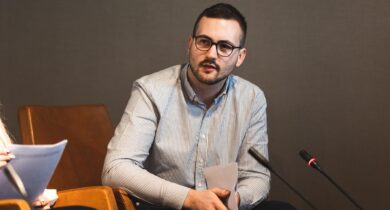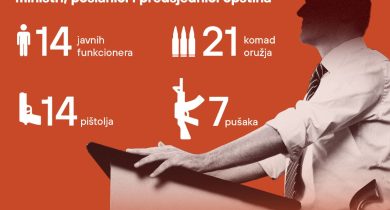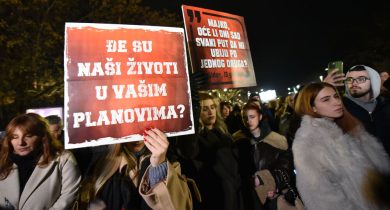On the occasion of 24 January – International Education Day, the Centre for Civic Education (CCE) highlights the continued decline in the quality of education in Montenegro. While there have been some improvements in infrastructure investments in recent years, key issues such as overcrowded schools, inadequate equipment, poor working conditions for teachers, and a lack… »
Actual
Journalists’ Day in Montenegro Highlights the Need to Improve the Environment for Media Freedom
On the occasion of January 23, Journalists’ Day in Montenegro, the Centre for Civic Education (CCE) extends congratulations to media employees in Montenegro, hoping for improvements in their working conditions as well as in the general attitude towards journalism as a profession. The CCE also expresses deep concern over the persistent restrictive environment for media… »
Withdraw the flawed proposal for amendments to the Law on Veterans’ and Disability Protection
Centre for Civic Education (CCE) calls on the Minister of Social Welfare, Family and Demography, Damir Gutić, and the Government of Montenegro to withdraw the flawed proposal for amendments to the Law on Veterans’ and Disability Protection and to finally enable a public discussion on this document. The absence of such dialogue has resulted in… »
New Project to Strengthen Media and Media Literacy for Democratic Engagement
The countries of the region are poorly ranked on international media freedom indexes, share similar challenges in the areas of media freedom and literacy, and are interconnected through deep social, cultural, and political ties, with political influences often crossing borders. This underscores the importance of joint interventions by organizations committed to democratic standards, media freedom,… »
Registered Firearms of Ministers, MPs and Mayors
Centre for Civic Education (CCE) has determined, based on data from the Agency for Prevention of Corruption (APC), that 14 out of 138 high-ranking officials—members of the Government, MPs and mayors – accounting for app. 10%, have registered firearms, total of 21 firearms (pistols and rifles), which some acquired through purchase and others through inheritance… »
It is time for a law that regulates the work of the Government and ensures it is led by those with capacity
Centre for Civic Education (CCE) has been emphasizing the necessity of adopting the Government Act for over a decade, which all ruling structures, despite their numerous differences, have been avoiding. Montenegro remains the only country in the region without a legally regulated composition, mandate, procedures, and decision-making framework for the Government, as well as specific… »
Call for Participants – Intercultural Camp
Centre for Civic Education (CGO) announces a call for participants for the INTERCULTURAL CAMP Are you a high school student interested in learning about constructive forms of communication, connecting with peers from different ethnic and cultural backgrounds, contributing to positive changes in your school and local community, and promoting interculturalism? If so, the Intercultural Camp… »
We support the voice of the youth for justice and security and urge that the ruling parties respect democratic principles
Centre for Civic Education (CCE) strongly supports the students from the informal group Kamo Śutra?, who have raised important social issues by highlighting the responsibility of institutions and their leaders in protecting citizens and their fundamental rights — the rights to truth and justice. We are pleased that the students have taken the initiative to… »
50+ Inspirations – How CSOs Change the Society
How does civil society change lives, contribute to better decision-making processes, improve the functioning of institutions, or help preserve nature? Answers to these and many related questions can be found in the publication “50+ Inspirations – How CSOs Change the Society”, published by the Centre for Civic Education (CCE) as part of the M’BASE programme, providing… »
Political theatre at the expense of citizens of Montenegro
When cumulative data for the first year of the 28th convocation of the Parliament of Montenegro is analyzed, it is evident that members of the parliamentary majority chose to remain largely uninvolved, despite many being first-time MPs with a valuable platform to showcase their knowledge and skills. Among the 10 least active MPs, 80% are… »










